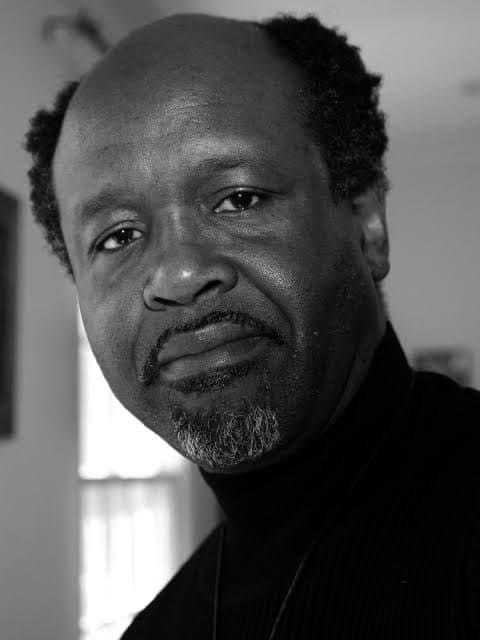Morning and Evening by Charles Spurgeon
Morning
"Arise, and depart." Micah 2:10
The hour is approaching when the message will come to us, as it comes to all--"Arise, and go forth from the home in which thou hast dwelt, from the city in which thou hast done thy business, from thy family, from thy friends. Arise, and take thy last journey." And what know we of the journey? And what know we of the country to which we are bound? A little we have read thereof, and somewhat has been revealed to us by the Spirit; but how little do we know of the realms of the future! We know that there is a black and stormy river called "Death." God bids us cross it, promising to be with us. And, after death, what cometh? What wonder-world will open upon our astonished sight? What scene of glory will be unfolded to our view? No traveller has ever returned to tell. But we know enough of the heavenly land to make us welcome our summons thither with joy and gladness. The journey of death may be dark, but we may go forth on it fearlessly, knowing that God is with us as we walk through the gloomy valley, and therefore we need fear no evil. We shall be departing from all we have known and loved here, but we shall be going to our Father's house--to our Father's home, where Jesus is--to that royal "city which hath foundations, whose builder and maker is God." This shall be our last removal, to dwell forever with him we love, in the midst of his people, in the presence of God. Christian, meditate much on heaven, it will help thee to press on, and to forget the toil of the way. This vale of tears is but the pathway to the better country: this world of woe is but the stepping-stone to a world of bliss.
"Prepare us, Lord, by grace divine,
For thy bright courts on high;
Then bid our spirits rise, and join
The chorus of the sky."
Evening
"And they heard a great voice from heaven saying unto them, Come up hither." Revelation 11:12
Without considering these words in their prophetical connection, let us regard them as the invitation of our great Forerunner to his sanctified people. In due time there shall be heard "a great voice from heaven" to every believer, saying, "Come up hither." This should be to the saints the subject of joyful anticipation. Instead of dreading the time when we shall leave this world to go unto the Father, we should be panting for the hour of our emancipation. Our song should be--
"My heart is with him on his throne,
And ill can brook delay;
Each moment listening for the voice,
Rise up and come away.'"
We are not called down to the grave, but up to the skies. Our heaven-born spirits should long for their native air. Yet should the celestial summons be the object of patient waiting. Our God knows best when to bid us "Come up hither." We must not wish to antedate the period of our departure. I know that strong love will make us cry,
"O Lord of Hosts, the waves divide,
And land us all in heaven;"
but patience must have her perfect work. God ordains with accurate wisdom the most fitting time for the redeemed to abide below. Surely, if there could be regrets in heaven, the saints might mourn that they did not live longer here to do more good. Oh, for more sheaves for my Lord's garner! more jewels for his crown! But how, unless there be more work? True, there is the other side of it, that, living so briefly, our sins are the fewer; but oh! when we are fully serving God, and he is giving us to scatter precious seed, and reap a hundredfold, we would even say it is well for us to abide where we are. Whether our Master shall say "go," or "stay," let us be equally well pleased so long as he indulges us with his presence.
Знакомьтесь сообщенийИзучите увлекательный контент и разнообразные точки зрения на нашей странице «Обнаружение». Находите свежие идеи и участвуйте в содержательных беседах
AFRICA TO THE WORLD!! Nigeria putting AFRICA on the map yet again ??
? Interesting news coming out of the UK has revealed Nigerian billionaire Dozy Mmobuosi is close to finalising a deal to buy English championship club Sheffield United ?
? Dozy Mmobuosi's net worth is rumoured to be about £7bn (N3.3 Trillion) and takeover of the club will reportedly cost around £90million. However the deal will be subject an approval by the English Football League owners & directors.
? Sheffield United are currently 2nd in the league and could potentially be playing in the English Premier League next season.
?? Last year, Dozy's foundation organised the maiden edition of the Dozy Mmobuosi Super Cup as a preseason tournament for the top Nigerian teams. Shooting Stars of Ibadan were the eventual winners and were handed a cheque of N100 million.

Nigerian singer, Tems, wins her first Grammy Award.
Congratulations To Tems For Winning A Grammy
By Charles Novia
It is a well deserved award.
However, I don’t think she is the first Nigerian female singer to win a Grammy. In these days when the Gen Zs and the most of the millennials tend to rewrite narratives to suit their era, an important part of history will be lost if some clarifications are not made on this narrative.
Sade Adu, a Nigerian-born singer who was born in Ibadan, Oyo State in 1959 and sometimes claims her father’s state, Ekiti, as her state of origin, was the first Nigerian female artiste to win a Grammy in 1986 for her album ‘Sade’ and has won three other Grammys over the years since then, bringing her total haul to four awards. Sade, largely regarded as a British citizen because of her dual citizenship, has never renounced her Nigerian background.
Technically, Sade Adu is the first Nigerian female to win a Grammy. This assertion is arguable but we don’t have to turn history on its head. I remember when Sade won that Grammy award and how proud we all were here in Nigeria. Those feats spurred a burst of the Nigerian creative spirit in my generation back then.
Again, congratulations to Tems, the second Nigerian female to win a Grammy Award, thirty-six years after Sade won her first Grammy.

Nigeria (Anambra) -Born Chika Okeke-Agulu, Resumes Duties at Oxford as Distinguished Professor
A leading Nigerian academic in the United States, Professor Chika Okeke-Agulu of Princeton University, has assumed duties at Oxford University, one of the oldest and most respected educational institutions in the world, as a distinguished professor.
Though announced last year as Slade Professor of Art for the 2023 academic session, Professor Okeke formally began teaching last week at the most prestigious British university established in 1096.
He is the first African to hold this position since the chair was endowed in 1870.
According to Oxford University, the chair of Slade Professor is “always a figure of international standing in the study of visual arts”.
This is a great honour to Nigeria and the African world, declares Toyin Falola, himself the preeminent of History at the University of Texas at Dallas.
“He consistently sets Nigeria on the path of global recognition for something good, and this is easily proven by his achievements over the course of his career”, says Falola about Okeke-Agulu who was just last year among the 85 outstanding scholars to become fellows of the highly revered British Academy, the United Kingdom’s national academy for the arts and social sciences.
The school valedictorian at the University of Nigeria at Nsukka some 29 years ago who went on to receive a doctoral degree in Art History from Emory University in Atlanta, Georgia, United States, Professor Okeke-Agulu has written globally acclaimed books on such distinguished African artists as El Anatsui, Obiora Udechukwu, Demas Nwoko, and Yusuf Grillo.
“Chika has helped to bring the works of these great men to the attention of the world and interpreted them in a most uncanny way”, notes Ndidi Dike, a top Nigerian sculptor and painter who also graduated from the same department as Professor Okeke-Agulu at the University of Nigeria, Nsukka.
“He is worth his weight in gold, and remains a great ambassador of Nigerian, nay African, people everywhere.”
Professor Okeke-Agulu hails from Umuoji in Idemili North Local Government Area of Anambra State.

Lusia Harris, the First and Only Black Woman to Play in the NBA
In 1977, professional basketball changed forever when a player named Lusia Harris became the first and only Black woman to play in the NBA. Growing up in Mississippi, Harris began her basketball career as the captain of her high school team as well as earning the most valuable player award three years in a row.
After graduating, Harris continued her career in sports by playing for the women's basketball team for Delta State University, where she won the national championship in Women’s basketball NCAA Division III,' according to BlackPast.org. She became successful outside of sports, however, as she finished her time in college with a bachelor's degree in health, physical education, and recreation.
Finally, in 1977, Harris made history when she was 'chosen in the seventh round of the 1977 NBA draft by the New Orleans Jazz (Now Utah Jazz),' becoming the first-ever African American woman to be officially drafted by the NBA. Although she was unable to try out for the team due to her pregnancy at the time, Harris did play briefly for the Houston Angels of the Women’s Professional Basketball League.
Support the Black Wall Street Movement
Https://blackwallstreet.org/join
BlackWallStreet.og eStore | Black History Books
https://blackwallstreet.org/books

Morning and Evening by Charles Spurgeon
Morning
"Arise, and depart." Micah 2:10
The hour is approaching when the message will come to us, as it comes to all--"Arise, and go forth from the home in which thou hast dwelt, from the city in which thou hast done thy business, from thy family, from thy friends. Arise, and take thy last journey." And what know we of the journey? And what know we of the country to which we are bound? A little we have read thereof, and somewhat has been revealed to us by the Spirit; but how little do we know of the realms of the future! We know that there is a black and stormy river called "Death." God bids us cross it, promising to be with us. And, after death, what cometh? What wonder-world will open upon our astonished sight? What scene of glory will be unfolded to our view? No traveller has ever returned to tell. But we know enough of the heavenly land to make us welcome our summons thither with joy and gladness. The journey of death may be dark, but we may go forth on it fearlessly, knowing that God is with us as we walk through the gloomy valley, and therefore we need fear no evil. We shall be departing from all we have known and loved here, but we shall be going to our Father's house--to our Father's home, where Jesus is--to that royal "city which hath foundations, whose builder and maker is God." This shall be our last removal, to dwell forever with him we love, in the midst of his people, in the presence of God. Christian, meditate much on heaven, it will help thee to press on, and to forget the toil of the way. This vale of tears is but the pathway to the better country: this world of woe is but the stepping-stone to a world of bliss.
"Prepare us, Lord, by grace divine,
For thy bright courts on high;
Then bid our spirits rise, and join
The chorus of the sky."
Evening
"And they heard a great voice from heaven saying unto them, Come up hither." Revelation 11:12
Without considering these words in their prophetical connection, let us regard them as the invitation of our great Forerunner to his sanctified people. In due time there shall be heard "a great voice from heaven" to every believer, saying, "Come up hither." This should be to the saints the subject of joyful anticipation. Instead of dreading the time when we shall leave this world to go unto the Father, we should be panting for the hour of our emancipation. Our song should be--
"My heart is with him on his throne,
And ill can brook delay;
Each moment listening for the voice,
Rise up and come away.'"
We are not called down to the grave, but up to the skies. Our heaven-born spirits should long for their native air. Yet should the celestial summons be the object of patient waiting. Our God knows best when to bid us "Come up hither." We must not wish to antedate the period of our departure. I know that strong love will make us cry,
"O Lord of Hosts, the waves divide,
And land us all in heaven;"
but patience must have her perfect work. God ordains with accurate wisdom the most fitting time for the redeemed to abide below. Surely, if there could be regrets in heaven, the saints might mourn that they did not live longer here to do more good. Oh, for more sheaves for my Lord's garner! more jewels for his crown! But how, unless there be more work? True, there is the other side of it, that, living so briefly, our sins are the fewer; but oh! when we are fully serving God, and he is giving us to scatter precious seed, and reap a hundredfold, we would even say it is well for us to abide where we are. Whether our Master shall say "go," or "stay," let us be equally well pleased so long as he indulges us with his presence.


